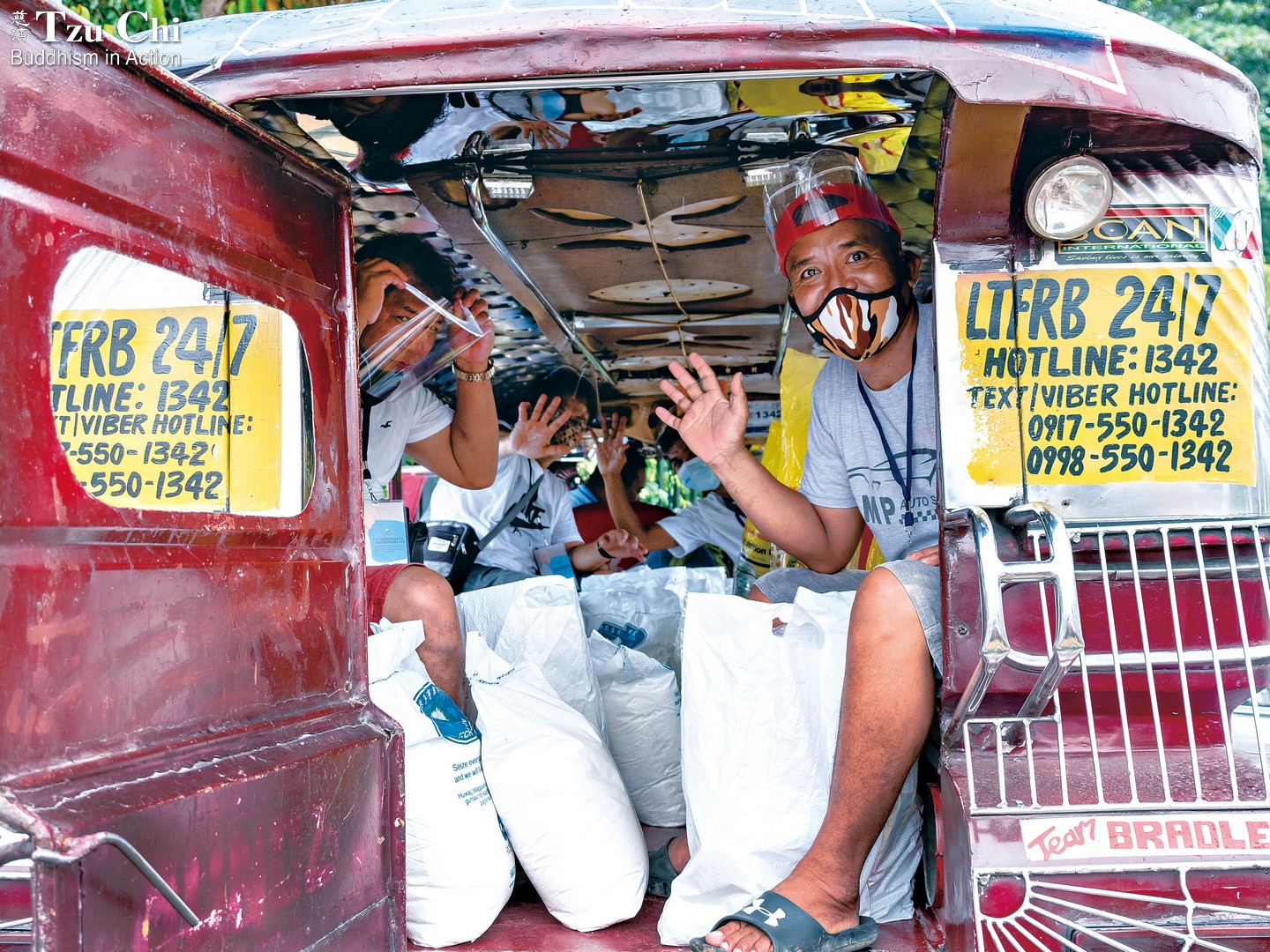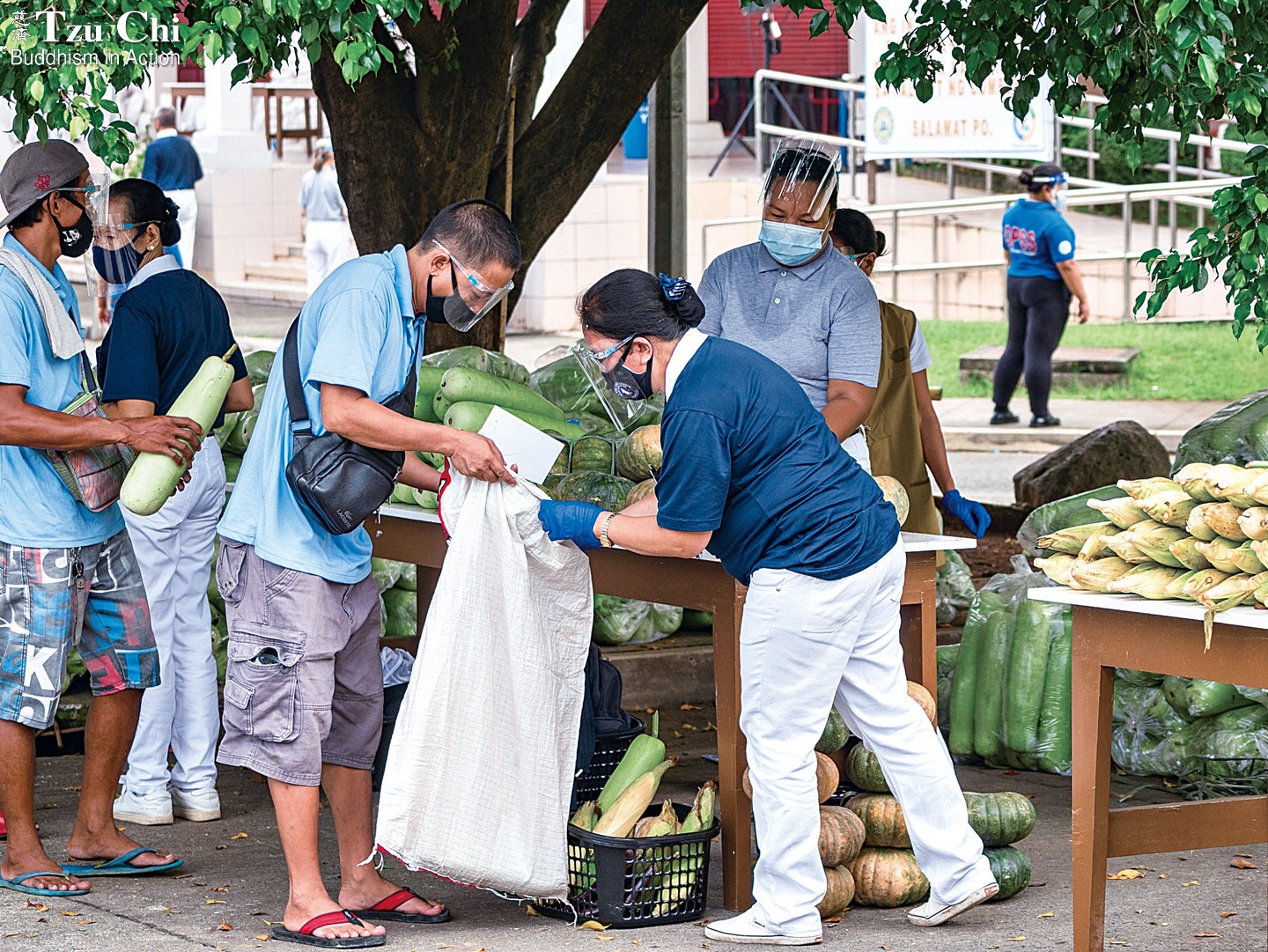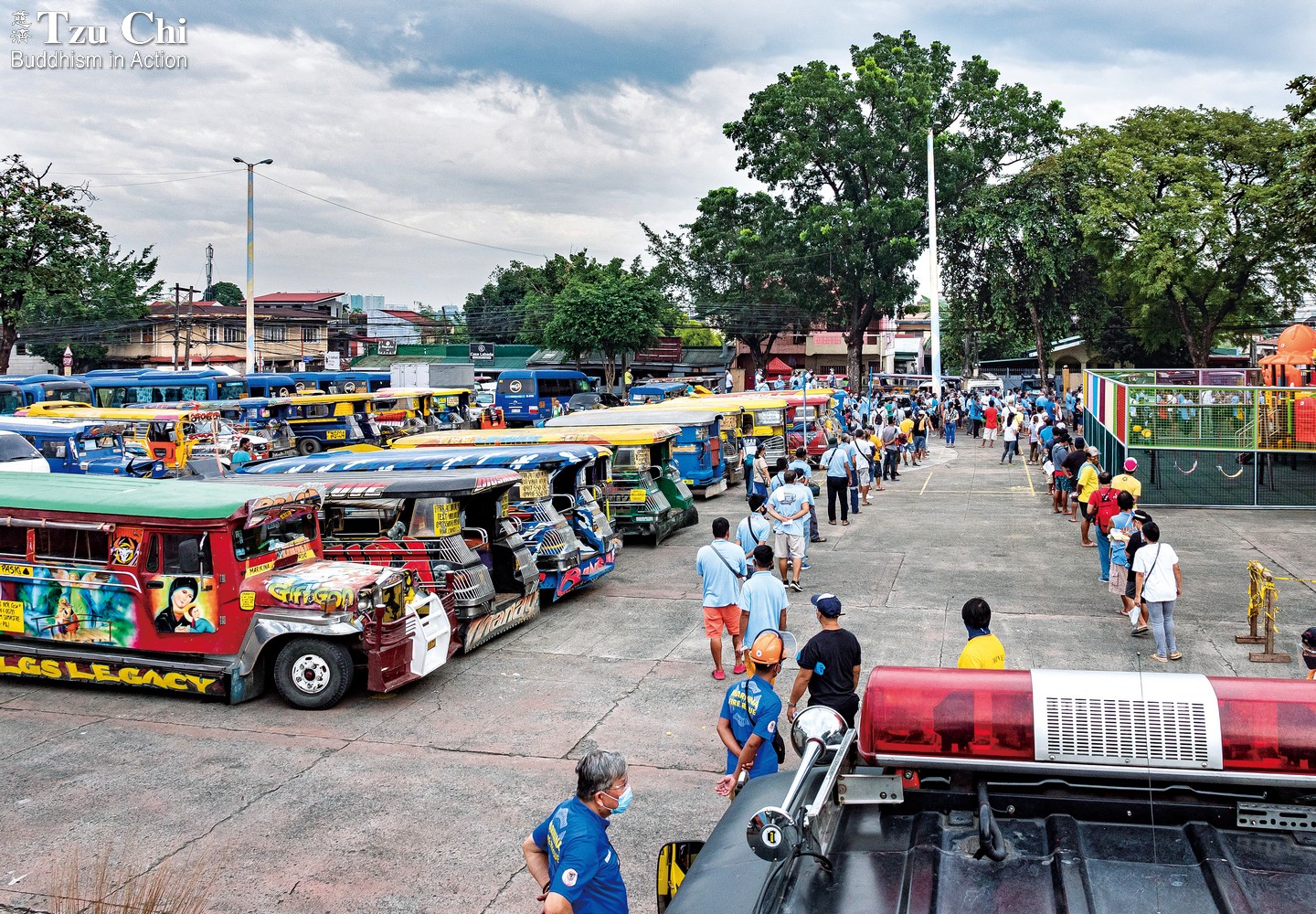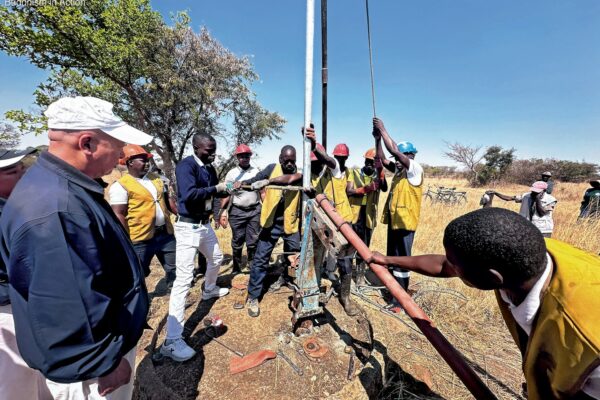Information provided by Tzu Chi Philippines
Compiled by Wu Hsiao-ting
Photos by Daniel Lazar

Quezon City
The Philippines has been one of the countries in Asia hardest hit by the COVID-19 pandemic. The number of infections in the nation hit 100,000 on August 2, with more than 2,000 deaths. In response to a petition from frontline medical workers to tighten restrictions to rein in the virus, a new lockdown was enacted in Metro Manila, Bulacan, Cavite, Laguna, and Rizal from August 4 to 18. An earlier shutdown, from mid-March to May, was one of the world’s longest. The months-long restrictions hobbled the economy, severely impacting the livelihoods of many people. Among those worst hit were jeepney drivers. Some drivers of this popular form of public transportation were impacted so badly they had to resort to begging to feed their families.
The plight of the jeepney drivers moved Tzu Chi volunteers in the country to action. They decided to provide daily necessities to jeepney and tricycle drivers for three consecutive months to help them ride out this difficult time. The project was launched in August, with distributions conducted in cities located from Luzon, northern Philippines, to Mindanao, southern Philippines, as well as in outlying islands. As of early October, more than 25,000 families had received help.
“The pandemic has caused us a lot of suffering,” said jeepney driver Bernard Manalang at a distribution. “Many drivers are desperate and don’t know how to provide for their families. We were lucky to meet Tzu Chi at a time like this. Thank you for your help. Every family who received help today was very happy.”

Antipolo City
Marikina

Volunteers overcame many challenges to obtain and confirm recipient rosters before the distributions could take place. They obtained lists of possible recipients from jeepney drivers associations and the government, but those lists didn’t match. As a result, volunteers had to expend a lot of effort double-checking the information. Despite the work, they felt everything was worth it as long as Tzu Chi’s aid could reach the needy and help ease their burden.
Volunteers confirmed recipients’ identities with QR codes at distribution venues before handing out supplies. Volunteers and recipients alike took precautionary measures to reduce the chance of virus transmission. Each distribution served hundreds of or even more attendees. Each attendee represented a family struggling to get by. Volunteers’ hearts ached as they thought of the large number of people suffering during this difficult time.
Some farmers were having a hard time as a result of the pandemic too. They had difficulty selling their produce because restaurants were closed. To help these farmers out, volunteers bought out of pocket 5,000 kilograms (11,023 pounds) of vegetables from them and distributed the food to more than a thousand jeepney drivers at the distribution at the Ynares Sports Complex in Antipolo City on October 3. Every driver who came to this event received eggplant, bottle gourd, corn, papaya, and pumpkin in addition to 20 kilograms of rice, cooking oil, soy sauce, vinegar, sugar, salt, noodles, and soap. It was a joyous day for both the drivers and farmers.
The end of the pandemic is not yet in sight. Volunteers in the Philippines will continue to help the most vulnerable in society tackle the economic challenges thrown in their way by the coronavirus.



